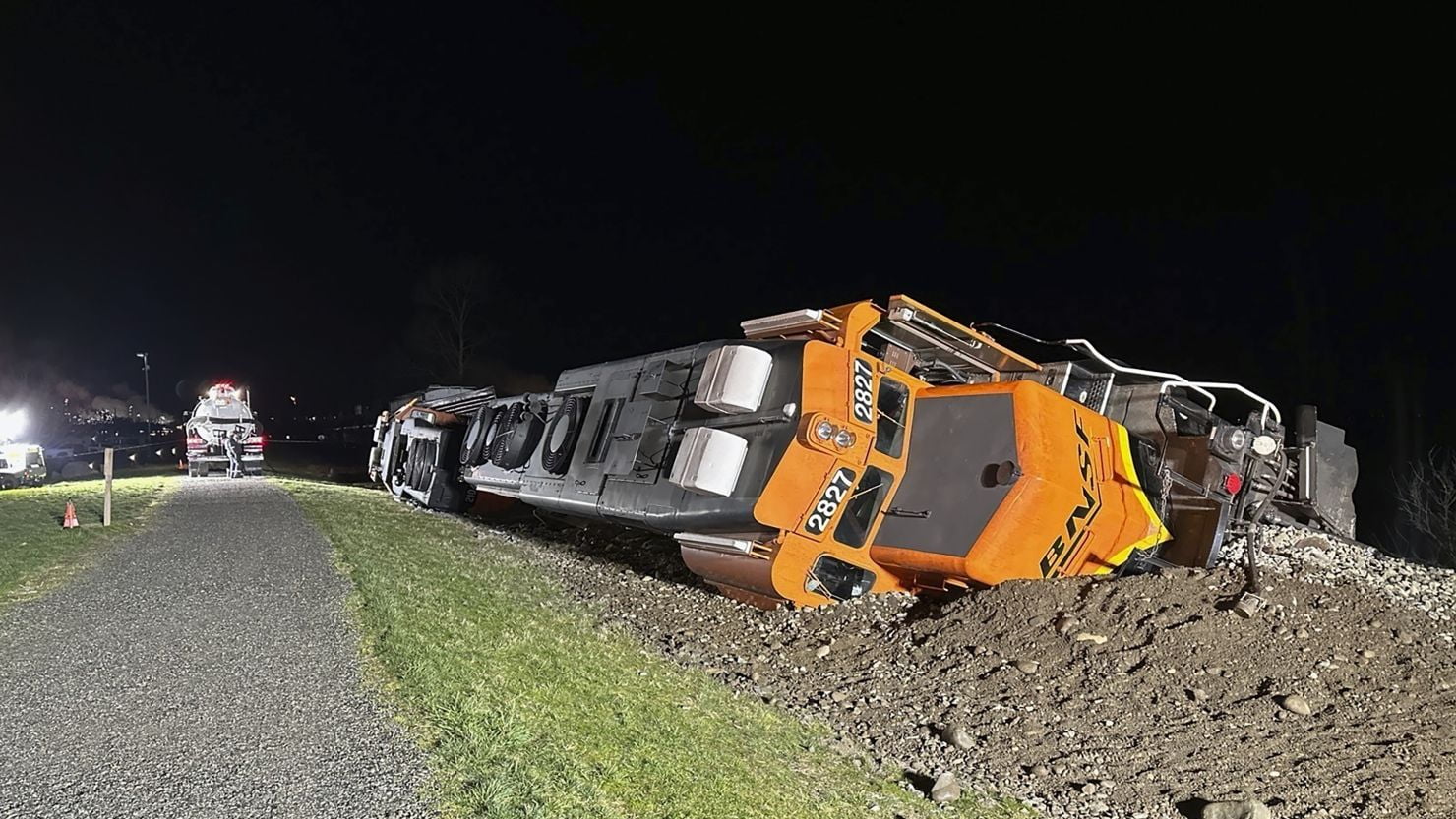
In Short
- Court ruling: Judge orders bnsf railway to pay $400m to swinomish tribe.
- Violation: Bnsf transported crude oil across tribal land without permission.
- Environmental impact: Route passes through delicate ecosystems.
- Legal precedent: Reinforces importance of respecting tribal agreements.
TFD – BNSF Railway has been ordered to pay over $400 million to the Swinomish Tribe for willfully trespassing by hauling crude oil across their territory without permission. This ruling marks a significant victory for the tribe and highlights the importance of respecting tribal sovereignty.
Seattle (AP) — A federal judge in Washington state ruled on Monday that BNSF Railway pay over $400 million to a Native American tribe. The judge found that the corporation had committed willful trespass when it routinely hauled 100-car trains carrying crude oil across the tribe’s territory.
The railway knowingly broke the terms of a 1991 easement with the Swinomish Tribe north of Seattle, which permits trains to carry no more than 25 cars per day, according to a preliminary ruling made by US District Judge Robert Lasnik last year. To find out how much BNSF made in profits from trespassing from 2012 to 2021 and how much it should have to disgorge, the judge ordered a trial earlier this month.
The Fort Worth, Texas-based business stated via email that it had no comments regarding the ruling. About 1,400 people make up the tribe, and they did not reply right away to an email for comment.
The tribe filed a lawsuit in 2015 after BNSF significantly expanded the number of cars it was transporting across the reservation—without the tribe’s permission—in order to transport crude oil from the Bakken Formation in and around North Dakota to a refinery that was close by. Along the coast, the route passes through delicate marine ecosystems and over water that connects to the Salish Sea, where the tribe’s fishing rights are protected by treaties.
Bakken oil burns more readily and is simpler to process into the fuels that are sold at the gas pump. A government agency issued a warning in 2014 about the greater degree of volatility of Bakken crude oil compared to other types of U.S. petroleum after train cars carrying the oil exploded in North Dakota, Alabama, and Quebec.
An estimated 3,100 gallons (11,700 liters) of diesel fuel leaked from two BNSF engines that derailed on Swinomish land last year, close to Padilla Bay.
Rail traffic was restricted to one train of twenty-five cars per day in each direction by the easement of 1991. also said that the tribe would not arbitrarily refuse authorization to increase the number of trains or cars, and also required BNSF to inform the tribe about the “nature and identity of all cargo” transported across the territory.
A 2011 Skagit County planning document revealed to the tribe that trains carrying crude oil will begin to arrive at a local refinery. According to court records, the tribe didn’t learn about the current track usage from BNSF until the following year.
The agreement was discussed between the tribe and BNSF, but according to Lasnik’s ruling from the previous year, “at no point did the Tribe approve BNSF’s unilateral decision to transport unit trains across the Reservation, agree to increase the train or car limitations, or waive its contractual right of approval.
“BNSF violated the conditions placed on BNSF’s permission to enter the property by unilaterally increasing the number of trains and cars without the Tribe’s written consent and failing to update the Tribe regarding the nature of the cargo that was crossing the Reservation,” according to Lasnik.
This month’s four-day trial was intended to give the judge sophisticated computations regarding the amount of “ill-gotten” earnings that BNSF should have to disgorge by giving the court specifics and expert witness. Lasnik estimated that amount to be $362 million, and for a total of more than $394 million, he added $32 million in post-tax profits from things like investment income.
The judge stated that although BNSF actually gained much more than $32 million in post-tax earnings, doing so would have increased the size of the judgment against the railway by hundreds of millions.
Conclusion
The $400 million fine against BNSF Railway for trespassing on Swinomish Tribe land underscores the critical need for corporations to respect tribal sovereignty and legal agreements. This landmark ruling not only serves as a victory for the Swinomish Tribe but also sets a precedent for similar cases in the future. Respecting indigenous rights and environmental safety is paramount in today’s legal and corporate landscape.
Connect with us for the Latest, Current, and Breaking News news updates and videos from thefoxdaily.com. The most recent news in the United States, around the world , in business, opinion, technology, politics, and sports, follow Thefoxdaily on X, Facebook, and Instagram .
